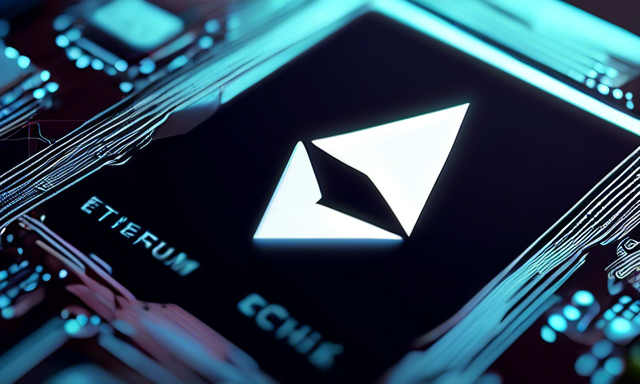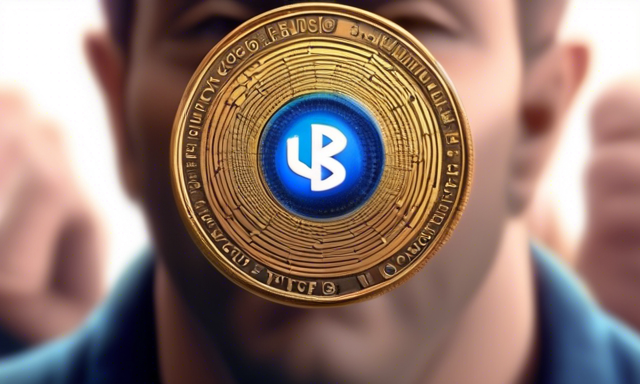Exploring the Basics of Ethereum: A Beginner’s Guide
Welcome to the world of Ethereum, where decentralized applications and digital currencies thrive. If you’re new to the concept of cryptocurrencies, don’t worry. In this beginner’s guide, we’ll walk you through the basics of Ethereum, giving you a solid understanding of how it works and why it has become increasingly popular in recent years.
What is Ethereum?
Ethereum, often referred to as the second-most popular cryptocurrency after Bitcoin, is a decentralized platform that enables developers to build and deploy smart contracts and decentralized applications (DApps). It was created by Vitalik Buterin in 2015 and has since revolutionized the way we think about blockchain technology.
Unlike Bitcoin, Ethereum is not just a digital currency; it is a platform that utilizes its native cryptocurrency called Ether (ETH) to power the network. Ether is used to facilitate transactions and pay for the computational power required to run applications on the Ethereum blockchain.
Smart Contracts and Decentralized Applications
Smart contracts are self-executing contracts with predefined rules and conditions. These contracts automatically execute when specific conditions are met. Through Ethereum’s smart contract functionality, developers can create applications that run exactly as programmed, without the possibility of downtime, censorship, fraud, or third-party interference.
Decentralized applications, or DApps, are applications that are built on top of Ethereum’s blockchain. These applications enable users to interact with each other and the network without the need for intermediaries or centralized control. DApps are transparent and open-source, providing a new level of trust and security.
How Ethereum Works
Ethereum’s underlying technology, blockchain, is a decentralized ledger that records all transactions and smart contracts in a transparent and permanent manner. To understand how Ethereum works, it’s essential to grasp the concept of mining.
When a transaction or smart contract is initiated on the Ethereum network, miners validate and confirm the transaction by solving complex mathematical problems. Once verified, the transaction is added to a block and added to the blockchain. Miners are rewarded with Ether for their computational work, creating an incentive for maintaining the security and integrity of the network.
Ethereum Wallets and Security
If you’re planning to engage with Ethereum, you’ll need a secure wallet to store your Ether and interact with DApps. Ethereum wallets come in various forms, including hardware wallets, online wallets, and mobile wallets. It’s crucial to choose a wallet that meets your security needs and provides easy access to your funds.
Security is paramount in the cryptocurrency space. It’s essential to ensure your wallet and private keys are kept safe and not shared with anyone. Losing your private keys could result in permanent loss of access to your funds. Always double-check the URL of websites and beware of phishing attempts. It’s also advisable to enable two-factor authentication whenever possible.
The Future of Ethereum
Ethereum has gained significant traction since its inception and has the potential to revolutionize various industries beyond just finance. With its smart contract capabilities and decentralized nature, Ethereum has drawn the attention of developers, entrepreneurs, and investors alike.
Several projects and applications are being developed on the Ethereum network, ranging from decentralized finance (DeFi) platforms to non-fungible tokens (NFTs) and more. As the ecosystem continues to evolve, Ethereum is poised to play a significant role in shaping the future of technology.
Conclusion: Embrace the Ethereum Revolution
Congratulations! You’ve now explored the basics of Ethereum. It’s an exciting time to be part of the cryptocurrency space, and Ethereum offers a new world of possibilities. Whether you’re a developer interested in building decentralized applications or an investor looking to diversify your portfolio, Ethereum has something to offer.
Frequently Asked Questions (FAQs)
1. Is Ethereum the same as Bitcoin?
No, Ethereum is not the same as Bitcoin. While they are both cryptocurrencies, they have different purposes and functionalities. Bitcoin was designed as a digital currency, whereas Ethereum is a platform for building decentralized applications and executing smart contracts.
2. Can I mine Ethereum?
Yes, you can mine Ethereum. However, it is important to consider that Ethereum is gradually transitioning from a proof-of-work (PoW) to a proof-of-stake (PoS) consensus algorithm. This means that mining will eventually be replaced by staking, which requires holding and locking up Ether in a wallet to support network operations.
3. How can I get started with Ethereum?
To get started with Ethereum, you can follow these steps:
1. Choose a secure Ethereum wallet.
2. Buy Ether (ETH) from a reputable cryptocurrency exchange.
3. Securely store your private keys.
4. Explore and interact with decentralized applications (DApps) on the Ethereum network.
4. Is Ethereum a good investment?
Investing in Ethereum, like any other cryptocurrency, comes with its own risks. It’s essential to do thorough research and consider your investment goals before making any financial decisions. The cryptocurrency market is highly volatile, so it’s recommended to diversify your investments and only invest what you can afford to lose.
Remember, this beginner’s guide is just the tip of the iceberg when it comes to understanding Ethereum. There is so much more to explore and learn about this groundbreaking technology. Embrace the Ethereum revolution and set sail on a journey into the exciting world of decentralized applications and digital currencies!





 By
By

 By
By
 By
By
 By
By
 By
By